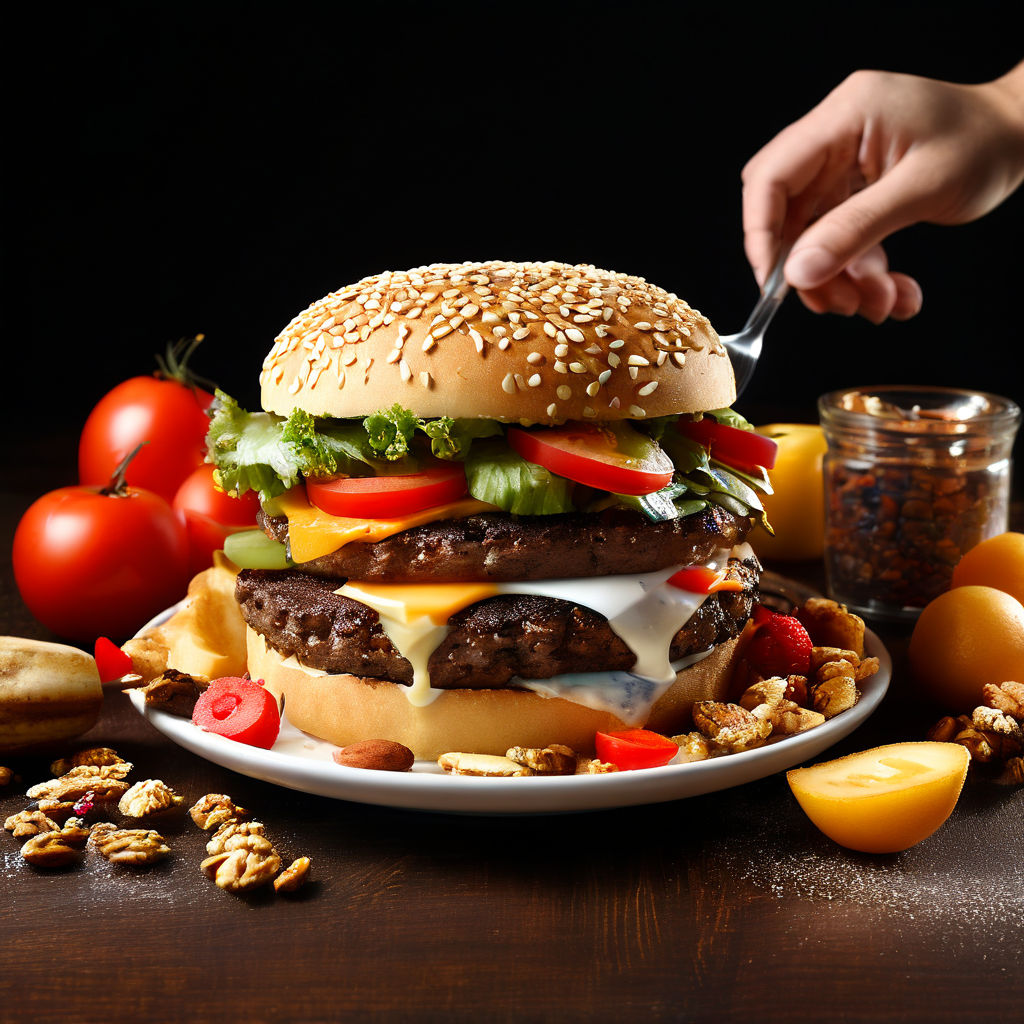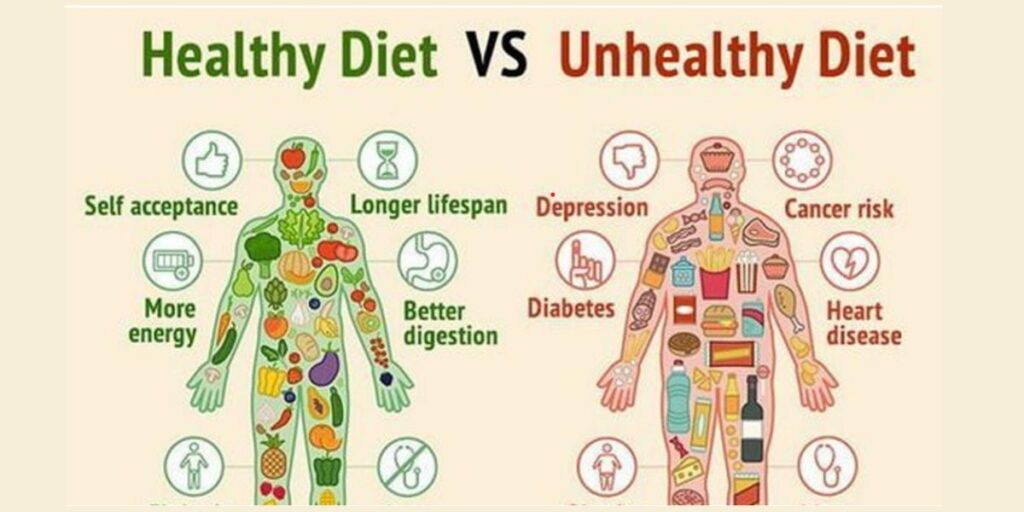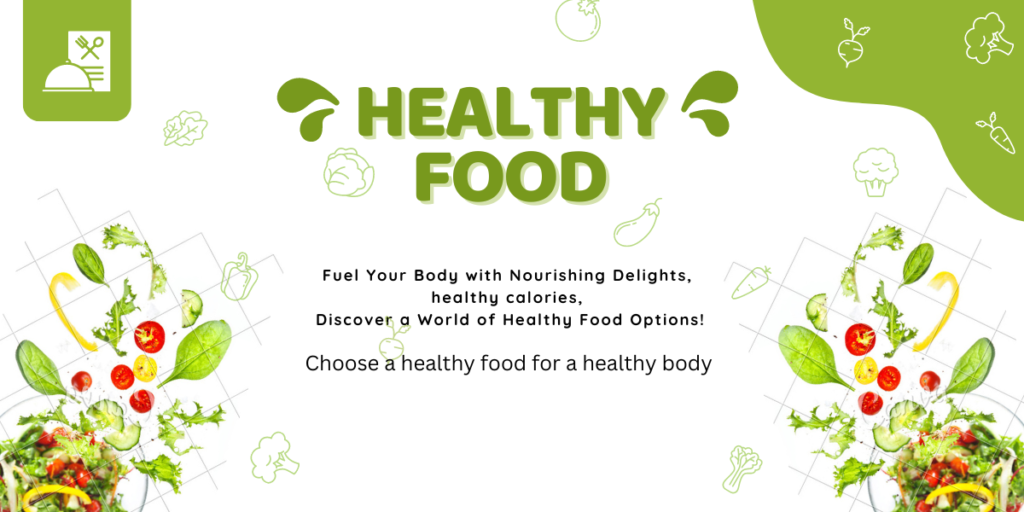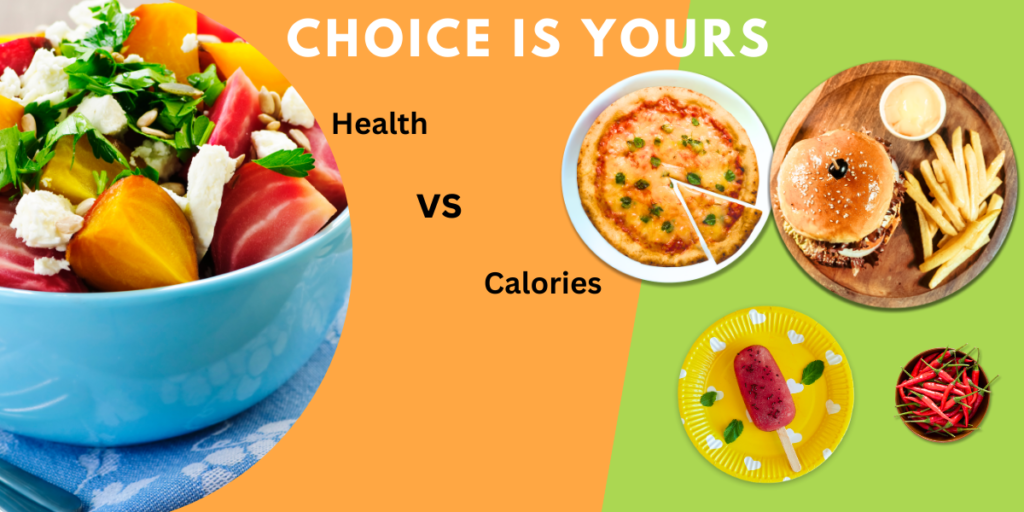
Table of Contents
ToggleWhat are Calories?
A calories is a unit of energy but in nutrition and our daily food calories is the energy that we get from our food when it gets digested.
Every person needs different calories per day to live a healthy life which differs body to body. As we know everybody is different as their needs are.
Everybody needs different amounts of calories per day to live healthy.
We can calculate our calories needed per day with help of our height, age and weight.
If you also want to know about your daily calorie needs then you can contact us.

How can we Manage our healthy Calories?
The human body needs calories to survive. Without energy, the cells in the body would die, the heart and lungs would stop, and the organs would not be able to carry out the basic processes needed for living. People absorb this energy from food and drink.
If people consumed only the number of calories needed every day, they would probably have healthy lives. Calorie consumption that is too low or too high will eventually lead to health problems.
The number of calories in food tells us how much potential energy they contain. It is not only calories that are important, but also the substance from which the calories are taken.
When a person consumes more calories than they burn, the body stores this excess energy as body fat. When the body needs more energy than it can get from the calories it consumes, it burns the stored body fat for energy. Regular physical activity is a good way of maintaining a healthy amount of body fat.
While other forms of physical activity can be time-consuming or expensive, walking is convenient and free for people who can do so.

How to reduce calories intake

Calories In vs. Calories Out
Decrease in calorie intake can also help you to reduce your weight. Although cutting calories without considering which food you are consuming isn’t a sustainable way to lose weight.
Here are some strategies which can help you lose weight.
For more details you can contact us.
- Eat more protein:
When it comes to losing weight, protein plays an important role in our health and weight loss.
Studies show that increasing your intake of protein may help you full and curb your appetite.
Protein may also help you fight craving. According to some research, high protein snacks help enhance feelings of fullness while decreasing hunger and appetite.
In addition to increasing weight loss, some research suggests that maintaining a high protein diet may prevent or reduce weight regain and help maintain muscle mass.
Thus , if you want to achieve long lasting, sustainable weight loss, consider increasing protein intake by eating more protein rich foods.
- Limit Sugar Intake :
As we know that sugar products also have many calories stored in them. Avoiding sugar products can also help you in the weight loss process.
Limit your intake of sugar-sweetened beverages, including sweets, sodas, chocolate milk, cold drinks, fruit juices and other drinks which include sugar.
Your brain doesn’t register liquid calories the same way it does solid calories, so they affect your feelings of hunger and fullness less significantly.
Studies also associate drinking sugary beverages with an increased risk of obesity.
The harmful effects of sugar also go far beyond weight gain. In fact, added sugar may contribute to other health issues, including heart diseases, liver problems, and type 2 diabetes.
- Drink more water :
Water is also an essential part of our body, as our body is 70% made of water only.
Drinking less water can also lead to many health problems. So for a healthy health drink more water.
Adequate hydration is associated with improved brain health and weight management as well as a reduced kidney stone risk.
Drinking water immediately before meals may reduce hunger and help you eat fewer calories.
When combined with a healthy diet, drinking more water – especially before meals – appears helpful if you need to lose weight.
- Exercise :
Resistance training activities like weightlifting have been shown to limit muscle loss, which may help minimize metabolic changes during long term calories restriction.
Cardio exercises such as walking, swimming or jogging are also important – both for increasing weight loss and supporting overall health.
Additionally , exercise has a variety of other other benefits that go beyond weight loss, such as increased longevity, enhanced energy levels, improved mental health, and a decreased risk of chronic disease.
- Reduce your intake of refined carbs and ultra- processed foods :
The term “ refined carbs” refers to grains that have lost their bran and germ, including white bread, pasta, crackers, and white rice. It also includes sugar and other sweeteners.
Refined grains typically lack fiber, which supports weight loss by decreasing your appetite and increasing feeling of fullness.
Eating fewer refined carbs may promote weight loss by altering levels of specific hormones that regulate your appetite, such as peptide. It’s also best to avoid ultra- processed foods.
Imagine your body like a bank account. Calories you consume are “deposits,” and the calories you burn through daily activities are “withdrawals.” If your deposits (calories in) are greater than your withdrawals (calories out), you’ll gain weight. Conversely, if your withdrawals are greater than your deposits, you’ll lose weight.
Understanding Your Calorie Needs
Several factors influence your daily calorie needs, including:
- Age: Younger bodies typically burn more calories than older ones.
- Sex: Men generally have higher calorie needs than women.
- Weight: Larger bodies require more calories to maintain weight.
- Activity Level: The more active you are, the more calories you burn.
Using Calories for Your Goals
Understanding your calorie needs is crucial for achieving your health goals:
- Weight Loss: To lose weight, you need to create a calorie deficit by consuming fewer calories than you burn.
- Weight Gain: To gain weight, you need a calorie surplus by consuming more calories than you burn.
- Maintain Weight: To maintain your current weight, aim for a calorie balance – consume roughly the same number of calories you burn.
Calorie Counting Tips:
Knowing your calorie needs is a great start, but here are some tips to put calorie counting into practice:
- Track your food intake: There are many apps and online tools that allow you to track your calorie intake.
- Read food labels: Pay close attention to serving sizes and calorie information on food labels.
- Focus on whole foods: Whole foods like fruits, vegetables, and lean proteins tend to be lower in calories and more filling.
- Don’t obsess: Calorie counting is a tool, not a religion. There will be days you go over or under your target.
How to Calculate your calorie need
We can easily calculate our calorie needed for our body and according to that we can manage our calories intake and achieve our goal of weight loss, weight gain or weight maintain.
To calculate your body calorie need you need to know your body weight, height and age.
Conclusion:
- Calorie counting is just one piece of the puzzle. Focus on creating a healthy and sustainable eating pattern that nourishes your body and fuels your fitness goals.
- Taking care of your health is a journey, not a destination. Focus on building long-term healthy habits and working with your dietician to achieve your wellness goals.
- If you also want to lose weight and know more about calories management and want to consult a dietician then contact us.
